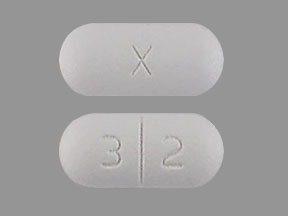
Amoxicillin-clavulanate Coupons & Savings Card – Discount Prices from $9.63
Generic for: Augmentin, Augmentin es-600
My prescription
Edit
875-125MG, Amoxicillin-clavulanate (20 Tablets)
Select pharmacy

CVS
$21.50
COUPON PRICE
Walmart
$9.63
COUPON PRICE
Walgreens
$14.50
COUPON PRICE
Albertsons
$19.66
COUPON PRICEAmoxicillin-clavulanate savings card
Show this card to your pharmacist
Walmart
$9.63
BIN
ID
PCN
GRP
019876
LH19EF88F4
CHIPPO
LHX
Powered by
More prescriptions for urinary tract infection
More prescriptions for urinary tract infection
Price history for Augmentin (brand) & Amoxicillin-clavulanate (generic)
20 Tablets, 875-125MG
Average retail price for Augmentin
Average retail price for Amoxicillin-clavulanate
Average SaveHealth price for Amoxicillin-clavulanate
Our price history data is based on aggregated prescription data collected from participating pharmacies in America. Our prescription data updates daily to reflect the latest price changes. If you notice a missing data point, it means there wasn't sufficient data available to generate a monetary value for that date.
We analyzed Amoxicillin-clavulanate prices for (875-125MG, 20 Tablets) over the last 12 months. The average retail price was $83.42, while the average price using the SaveHealth discount card was $24.15. That's a savings of approximately 71.05% when using our Amoxicillin-clavulanate coupon.
Compared to the generic version, Augmentin had an average price of $711.50 over the same time period. With the SaveHealth savings card, Amoxicillin-clavulanate is 96.61% cheaper on average than Augmentin.
*Retail prices are based on pharmacy claims data, and may not be accurate when we don't have enough claims.
Amoxicillin-clavulanate dosage forms
Dosage Quantity Price from Per unit 250-125MG 14 Tablets $27.84 $1.99 250-125MG 20 Tablets $37.80 $1.89 250-125MG 21 Tablets $39.24 $1.87 250-125MG 28 Tablets $48.76 $1.74 250-125MG 30 Tablets $50.93 $1.70 500-125MG 14 Tablets $7.04 $0.50 500-125MG 20 Tablets $8.98 $0.45 500-125MG 21 Tablets $9.31 $0.44 500-125MG 28 Tablets $11.58 $0.41 500-125MG 30 Tablets $12.22 $0.41
| Dosage | Quantity | Price from | Per unit |
|---|---|---|---|
| 250-125MG | 14 Tablets | $27.84 | $1.99 |
| 250-125MG | 20 Tablets | $37.80 | $1.89 |
| 250-125MG | 21 Tablets | $39.24 | $1.87 |
| 250-125MG | 28 Tablets | $48.76 | $1.74 |
| 250-125MG | 30 Tablets | $50.93 | $1.70 |
| 500-125MG | 14 Tablets | $7.04 | $0.50 |
| 500-125MG | 20 Tablets | $8.98 | $0.45 |
| 500-125MG | 21 Tablets | $9.31 | $0.44 |
| 500-125MG | 28 Tablets | $11.58 | $0.41 |
| 500-125MG | 30 Tablets | $12.22 | $0.41 |
| 875-125MG | 20 Tablets | $9.63 | $0.48 |
| 875-125MG | 6 Tablets | $4.64 | $0.77 |
| 875-125MG | 10 Tablets | $6.06 | $0.61 |
| 875-125MG | 14 Tablets | $7.49 | $0.54 |
| 875-125MG | 28 Tablets | $12.48 | $0.45 |
